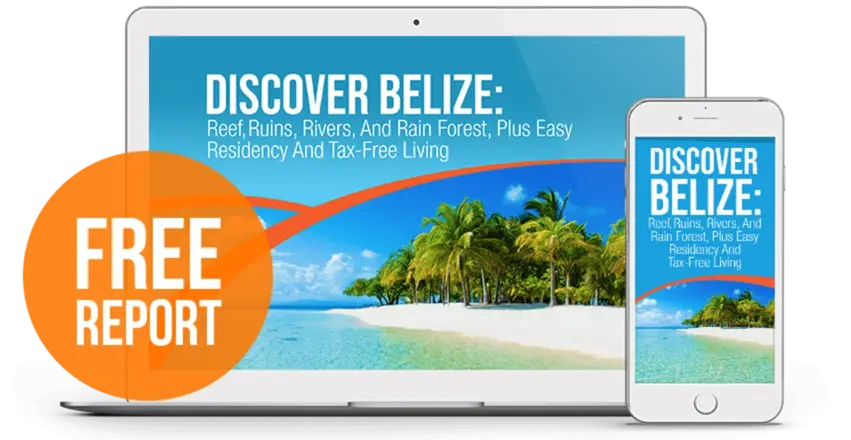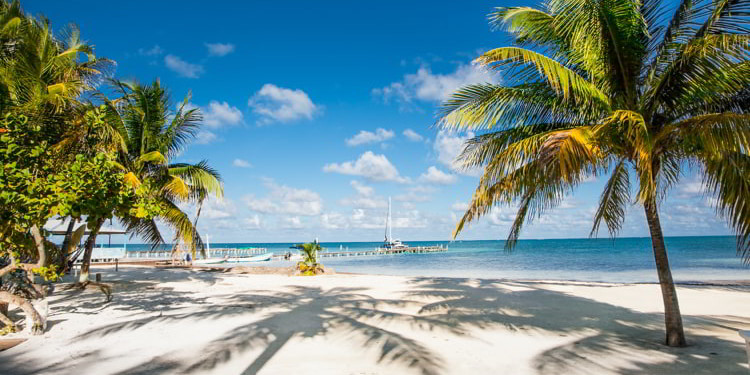Editor’s note: At the start of 2024, Belize amended the QRP Program.Belize’s Qualified Retirement Program (QRP) gets a lot of press. It’s one of the most user-friendly retirement visa programs in the world, and it provides
certain benefits.
But changes to the program have made it less attractive to expats… especially those already in Belize. A number of expats I know are even letting their QRP status lapse.
Here’s why…
1. It’s basically a dressed-up tourist visa
The QRP is administered by the Belizean Tourist Board (BTB), not the Immigration Department.
The Immigration Department, however, does issue the official laminated QRP Resident Card.
This is the BTB’s justification for why QRP visas are often not available until March despite the annual deadline for renewal being Dec. 15.
Also, QRP status does not lead to permanent residency… not ever. This is perhaps its biggest downfall. It doesn’t matter how many years you accumulate living in Belize under the QRP. It doesn’t make you eligible for permanent residency.
To get permanent residency, you should show up in Belize as a tourist and extend your tourist visa every month for a year. After 50 consecutive weeks, you’re eligible for permanent residency.
The downside to this approach is that you can’t leave Belize for more than 14 days during this time, and the monthly tourist visa extensions are a hassle.
2. The proof of income requirements can be onerous
To qualify for the QRP, you must show a monthly income of US$2,000. This amount (or US$24,000 per year) must be deposited in a Belize bank.
You could wire your US$2,000 every month, but this incurs more fees… you’d pay the fee for receiving the wire 12 times, with the fee increasing each time you wired.
The more you wire at one time, the lower the percentage the bank charges you.
Currently, you can keep your funds in U.S. dollars by using international Belize banks, but this could easily change…
If forced to deposit in a domestic Belize bank in future and thus convert to Belizean dollars, you’d get a less-favorable rate than the official BZ$2 per US$1.
Domestic banks in Belize are less user-friendly than their international counterparts and always feature lines so long, they go out the front door.
Making sure your funds are wired by the April 15 deadline for the next year is time-consuming.
Even if you wire funds out of the same Belize account before wiring them back to be redeposited, you could still need all kinds of documents to show the funds’ source. It can take several weeks and phone calls to the bank to get the money deposited properly.
Back to the transfer fees I mentioned… Our bank charges US$35 to receive the wired funds and US$100 to wire them out.
Belize banks also charge a percentage of the funds for the privilege of withdrawing them, which is why the only thing we do with our Belizean bank account is wire funds in and out once a year.
3. Requirements are high but benefits are low
On top of the proof of income, you must be 45 years of age or older and pass a security clearance check (carried out by Belize’s Ministry of National Security) and a medical exam to qualify for the QRP.
Application fees are US$2,100.
The QRP gets you “official status” in Belize, meaning you can access Belize lines at immigration, you incur less taxes on flying out of the country, you’re free from having to get a monthly passport stamp (required under the permanent residency route outlined above)… but it doesn’t get you much else.
It allows you to import one car every four years and all of your household goods within 12 months of receiving QRP status. If you’re planning to move to Belize with your household goods, then getting QRP status can save you a considerable amount.
Some expats apply for the QRP only to import their effects and then let their status lapse.
4. Renewing QRP status can be a hassle
You must renew your QRP ID card annually for a US$25 fee, and you must spend 30 consecutive days per year in Belize to maintain your status.
You have to make two trips to immigration each year to submit your annual QRP application and to pick up the card when it’s ready.
You’re put in limbo at the beginning of each year when you have completed your QRP application but not received a card or any official proof of your status—an annoying interim.
5. QRP restrictions have become more stringent
A few years ago, expats were allowed (and even encouraged) to start or own businesses, in which they could play a supervisory role.
This potentially benefitted Belize in terms of employment, expertise, and increased tax revenue.
Now, if you want to do business in Belize under the QRP, you must apply to the BTB with a business plan, proof of investment capital (at least BZ$1 million), and proof of residency. On top of that, you’ll have to hire five Belizean citizens.
6. You have to deal with Belize bureaucracy
The QRP application process requires a lot of paperwork that can seem redundant or unnecessary to an American, such as flowery letters of reference from two different banks.
Delays in application processing times are common. If you’re gunning for QRP status and wish to bring your belongings with you when you arrive, it’s a great idea to begin the application process six months before your intended arrival… as are regular phone follow ups. The BTB’s response time is slow, so patience is required.
On the upside, because the BTB lists the QRP requirements quite clearly, meeting them is more a question of slogging down the list rather than something more onerous.
Various attorneys and other ambitious expats may offer to handle the QRP process for you… for substantial fees.
Their services are unnecessary. Even if you decide to go with a professional, you’ll still be required to meet the same list of document requirements, which only you can compile.
It may be true that finding someone on the ground who knows the ropes may make it easier for you… or, at least, you’ll get a shoulder to cry on and someone who’ll probably answer your phone calls.
Carolyn Casey
Belize Insider












